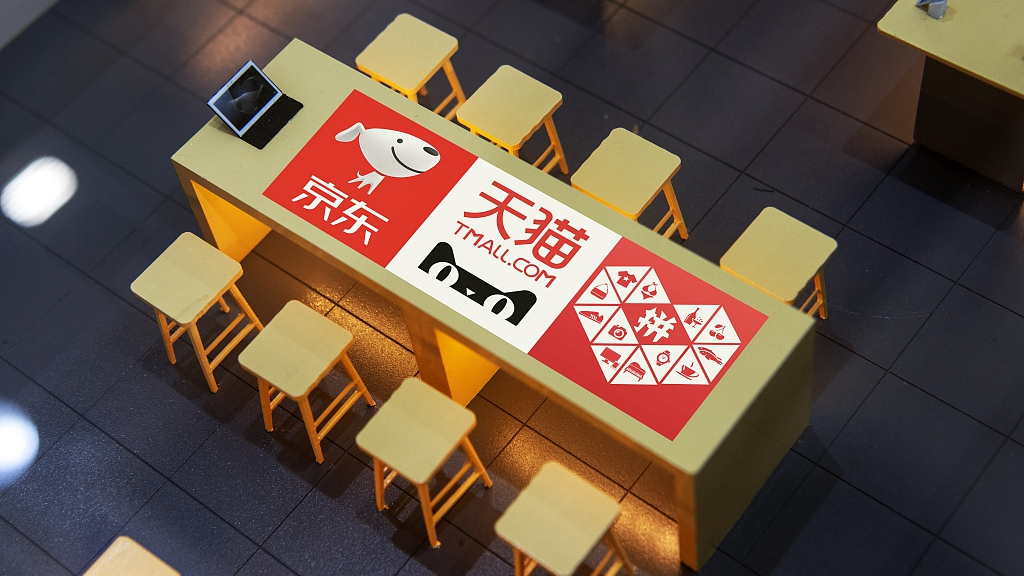01:52

As the rest of Asia and even some European players join this year's Double Eleven shopping craze, the Chinese e-commerce landscape has changed as the gap between the top two e-commerce giants has widened.
Chinese e-commerce giant Alibaba still held a dominant position in sales, consumer base and market value. Alibaba said that more than 200,000 brands participated in this year's Double Eleven sale with one million new products being offered. The promotions and coupons offered by brands and the platform could help users save up to 50 billion yuan.
Two new consumption trends are emerging this year. One is that the real economy is connecting more closely to the shopping spree. Another is that Chinese consumers are also more closely connecting with the wider world.

Meeting up with the new consumption pattern, rising star Pinduoduo has become the runner-up to Alibaba. The company gained more new users in the second quarter than Alibaba and JD.com combined. Surprisingly, the bulk of these users are existing online shoppers in big metropolises, who have been loyal to such e-commerce titans.
Consumers in big cities are contributing to half of Pinduoduo's revenues. The company is burning cash to win customers during the Singles' Day shopping fest, while the other two giants have their strength in logistics.
JD.com is known for running things similar to how Amazon does. It has super-fast deliveries thanks to its in-house distribution system. It also sells products directly to shoppers. Plus, Alibaba is reportedly investing at least 100 billion yuan in its logistics network.
Overall, Alibaba still owns more than half of the Chinese market, while JD.com takes home a quarter.
(CGTN's Xia Cheng also contributed to this story.)